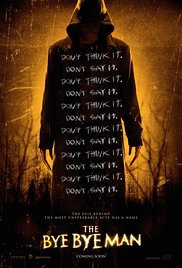
Read this review on Goodreads!
The technological Singularity may never actually happen, but at least it makes for some great sci-fi.
Accelerando is an intelligent, fast-paced look across the event horizon of the deep future. It follows the endeavors and legacy of Manfred Macx as he attempts to jump-start the next Singularity. In the beginning of the book we marvel at the technological wonderland of the near-future; towards the middle we wonder what sort of rabbit hole we’ve stumbled into; towards the end we question whether the post-Singularity future is really all that it’s chalked up to be. But through it all we laugh, we love, and we are filled with existential dread as we wonder if this is really the direction humanity is headed.
This was my second time reading through Accelerando. It was great the first time but I admit much of it went over my head. This book required a second read-through. Charles Stross is extremely detail-oriented and not afraid to spew technical jargon with no explanation. There’s no time for him to explain it. Stross assumes that his audience is acquainted with hard sci-fi and at least knows a little of what the technological Singularity is. This allows him to play with the higher concepts that form the overall plot of the novel. I came into my second read-through equipped with more knowledge acquired over the years, and this allowed me to really appreciate the higher plot with its twists and turns. It also helped that I read another of Charles Stross’ books, The Rapture of the Nerds (co-written with Cory Doctorow), before coming back to this one. I began to realize that Stross’ writing style could be seen as an attempt at further defining a specific genre that I call “Singularitarian literature”. Stross loves instilling his works with Singularity ideas.. Singularitarian literature to me is just another subgenre of cyberpunk and more accurately a subset of post-cyberpunk. Accelerando itself is very self-referential in this respect, with frequent references to cyberpunk culture and the fact that it’s based around the idea of an actual technological singularity — as prophesied by Ray Kurzweil and the likes.
Accelerando is a showcase of awesome tech wrapped in a membrane of exciting buzzwords. Manfred’s goggles in the first part of the book are still my favorite piece of tech presented in this novel. After my first read-through I couldn’t wait until Augmented Reality goggles were actually created so that I could run around the city in an always-connected state, eating up information like a sponge. Lucky for me, it seems this tech is not too far away. And that is the main allure of this novel: most of the tech that Stross describes in this book seem like they are just around the corner in real life. Another of my favorite concepts explored in this book is the idea of sending a crew of uploaded minds into deep space using a vessel the size of a tin can. Seems weird, but it just might be possible when you consider 1) the need for spacefaring vessels to be cost-effective, and 2) the ability for uploaded minds to create virtual spaces within the tiny vessel that to them are life-sized and infinitely accommodating. In fact, this idea has very recently been proposed by none other than Stephen Hawking. It makes me wonder if he read Accelerando, or if this idea has actually been thrown around a lot in the scientific community. In any case, this is all just a taste of what Stross describes to readers in his book. Stross explores everything from mind-melding to wormholes and there is never a dull moment. He very casually strings together jargon and buzzwords in a way that is off-putting at first. After awhile though I saw it as a very deliberate attempt at establishing a writing style for this book. To Stross, this must be the way humans would naturally begin speaking after becoming so familiar with advanced technology and scientific concepts. When the entire population becomes sufficiently scientifically literate, our entire lexicon may change. At the same time there is a bit of humor in this writing style. I always chuckled to myself whenever business/economic terminology was dropped in a casual yet ironically serious manner. You’ll just have to read it to see what I mean.
Like all good literature, Accelerando is full of allegory and classical references. During my second read-through it was easier to pick up on these. Part 2 of Accelerando for example can be almost entirely compared to Lewis Carroll’s Alice in Wonderland. I won’t go into too much detail on this for the sake of minimizing spoilers, but it’s definitely something to look out for if you decide to read this book. Aside from that, Stross uses this book as a philosophical megaphone exploring the implications of a post-Singularity world. You will most likely find every argument for and against the adoption of radical technologies, and you may be surprised to find yourself on the fence with things you thought you were comfortable with.
Despite all its technological splendor, Accelerando has its faults. For one, the book is so fast-paced that it was often hard for me to keep track of the setting. The combination of virtual and ‘meatspace’ worlds is disorienting. It is hard to tell when a character has transitioned from space to space. In addition to that, the attempt at coining new terms and concepts mixed with the use of technical jargon can further confuse things. This book will require a third read-through for me in order to get things fully situated, although I wouldn’t be too bummed to have to read this book again. Furthermore, if you’re looking for a book with deep characters dealing with real personal demons, this is not it. The focus of this book is more so to describe the deep future. Most of the characters are only homunculi acting as a vessel for ideas. Much of the “tragedy” in the story is short-lived and usually comes off as comical, but maybe this was intended. That being said, I am personally an effusive technophile and have no problem foregoing substantial characters for incredible technology and ideas about the deep future. I’m giving Accelerando 4 out of 5 stars because I really liked it despite how convoluted it can get. I will most likely read it again.
Advertisements Share this:




